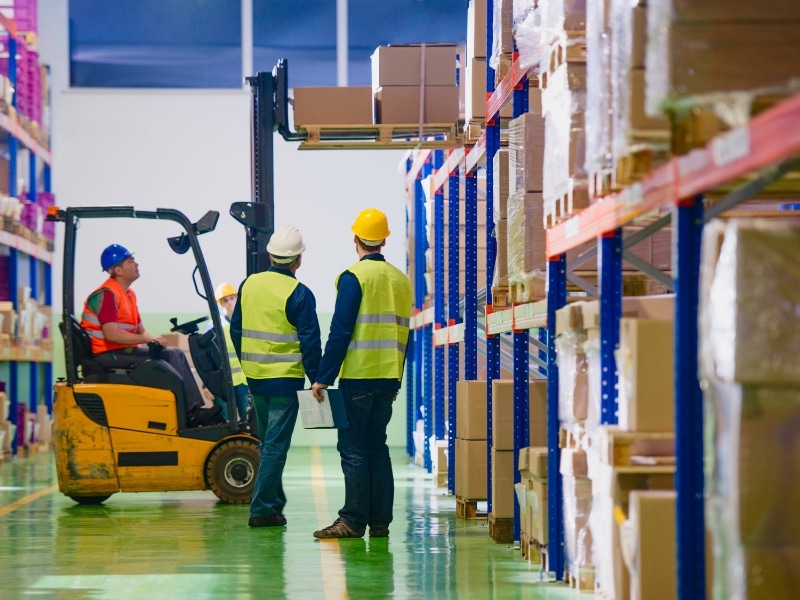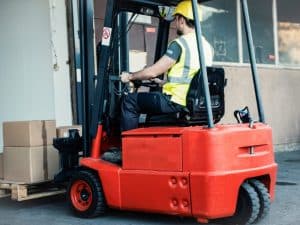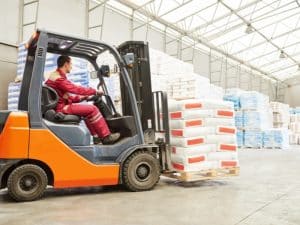Operating a forklift might look straightforward, but it comes with serious risks that can impact the operator and everyone in the workplace. Whether you’re just getting started or looking to advance in the construction or warehouse industry, understanding why forklift safety training is crucial can help you prioritise your well-being and the safety of those around you.
What are the dangers of operating a forklift without proper training?
Forklifts are heavy and powerful machines that require skill to operate safely. If an operator lacks proper training, the consequences can be dire. Here are some dangers of operating a forklift without adequate training:
- Tipping over: Forklifts have a high centre of gravity and can easily tip over if mishandled, especially on uneven surfaces or when carrying heavy loads.
- Collisions: Untrained operators are more likely to collide with other vehicles, walls, or even people, leading to severe injuries or fatalities.
- Load spills: Incorrect loading techniques can cause goods to fall, resulting in property damage, financial loss, or injury to nearby workers.
- Pedestrian hazards: With proper safety awareness, drivers may see or avoid pedestrians, increasing the risk of accidents.
How does forklift safety training improve workplace safety?
Safety training isn’t just a formality; it’s a game-changer in the workplace. Here’s how it can enhance overall safety:
- Proper load management: Training teaches you how to assess and balance loads to minimise the risk of tipping or load spills.
- Enhanced awareness: Courses help operators become aware of hazards, such as blind spots and pedestrian areas, improving reaction times and decision-making.
- Efficient emergency response: In case of a problem, trained operators know how to act quickly to reduce harm and prevent accidents from escalating.
- Safer working practices: Learning safe driving techniques, like maintaining a proper speed and using the horn appropriately, keeps everyone around the forklift secure.
What skills do you gain from forklift safety training?
Forklift safety training equips you with essential skills beyond just operating the machinery. Here’s what you’ll learn:
- Equipment inspection: Training teaches you how to inspect the forklift before use to ensure it’s in good working condition and avoid mechanical failures.
- Load assessment: You’ll understand how to calculate load capacities and position loads to prevent accidents correctly.
- Navigation skills: Courses cover how to manoeuvre safely in tight spaces, avoid obstacles, and handle uneven surfaces.
- Communication techniques: Team safety needs to learn to communicate effectively with other workers using signals and safety protocols.
- Emergency protocols: Knowing what to do in case of equipment failure or a nearby accident can significantly affect the outcome.
How does forklift safety training benefit your career?
Investing in forklift safety training doesn’t just make you a safer operator; it also opens doors for career advancement:
- Job readiness: Many employers won’t consider applicants without proper certification, so training makes you a more competitive candidate.
- Skill validation: A forklift licence proves to employers that you have the knowledge and skills to operate safely and efficiently.
- Career flexibility: With certification, you can work in various industries, from construction and warehousing to logistics and manufacturing.
- Higher earning potential: Skilled operators are in demand, and having a licence can lead to better job offers and potentially higher wages.
Can forklift safety training reduce equipment and property damage?
Yes, it can. Forklifts are expensive, and repairs can be costly. Here’s how training reduces the likelihood of damage:
- Preventing mishandling: Training teaches you how to operate forklifts correctly, reducing wear and tear on the equipment.
- Accurate load placement: By understanding how to load and unload safely, you’re less likely to damage goods or warehouse structures.
- Safe navigation: Knowing how to manoeuvre around obstacles and through narrow spaces minimises the risk of collisions and damage.
- Routine checks: Training emphasises regular inspections, helping to identify and address issues before they become costly problems.
What should you expect during forklift safety training?
If you’re planning to get trained, it’s helpful to know what to expect:
- Theory lessons: Courses cover the basics of forklift mechanics, workplace hazards, and safety regulations.
- Hands-on practice: Expect to operate a forklift under supervision, learn how to navigate, lift loads, and respond to emergencies.
- Equipment inspections: You’ll be taught how to inspect forklifts for issues and ensure they’re safe to use.
- Safety protocols: Training emphasises communication, awareness of surroundings, and proper handling techniques. To learn more about forklift safety regulations and best practices, consult industry experts or visit relevant government websites.
How can you choose the right forklift safety training course?
Choosing a course isn’t just about convenience; it’s about getting quality education. Here’s what to consider:
- Accreditation: Ensure the training provider is accredited and recognised by workplace safety authorities.
- Practical training: The best courses offer hands-on practice with actual forklifts, not just classroom learning.
- Experienced instructors: Look for courses led by qualified professionals with industry experience.
- Location and schedule: Choose a provider that fits your needs regarding location and flexibility, especially if you’re balancing work commitments.
- Post-course support: Check if the provider offers assistance for any questions or refresher courses down the line.
What are the steps to obtain your forklift licence?
Getting licenced is straightforward but requires dedication:
- Complete training: Enrol in a comprehensive forklift operator training program and complete the theoretical and practical components.
- Pass the assessments: You must demonstrate your skills and knowledge through written and practical tests.
- Apply for your licence: After passing, you can apply for your forklift licence through your state’s regulatory body.
- Keep it up to date: Stay informed about renewal requirements to ensure your licence remains valid.
Ready to elevate your career and workplace safety?
Consider enrolling in a forklift training course to enhance your career prospects or improve workplace safety. SafeZone Training offers training programs to equip you with the skills and knowledge you need to operate safely and efficiently. Choose SafeZone Training for top-notch forklift safety courses and get started on your journey to becoming a certified operator.



